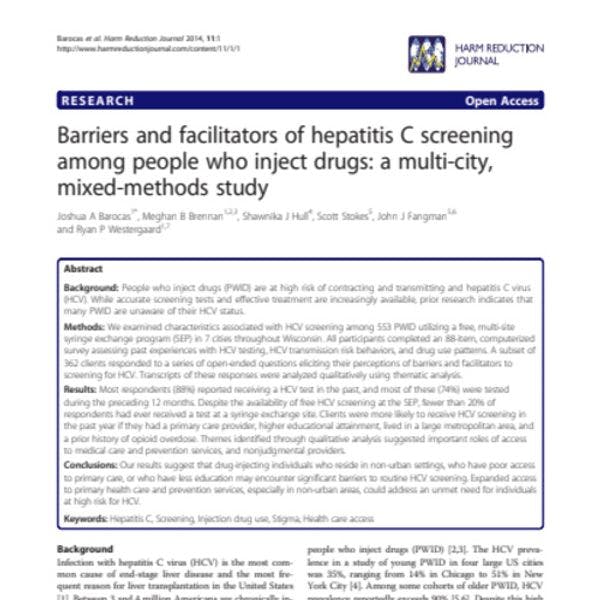Obstáculos y facilitadores de la detección de la hepatitis C entre personas que usan drogas inyectables: un estudio en varias ciudades y con métodos combinados
Un mayor acceso a servicios de atención primaria de la salud y de prevención podría atender las necesidades de las personas con un alto riesgo de contraer el virus de la hepatitis C.
Más información, en inglés, está disponible abajo.
Suscríbase a las Alertas mensuales del IDPC para recibir información sobre cuestiones relacionadas con políticas sobre drogas.
People who inject drugs (PWID) are at high risk of contracting and transmitting and hepatitis C virus (HCV). While accurate screening tests and effective treatment are increasingly available, prior research indicates that many PWID are unaware of their HCV status.
The results suggest that drug-injecting individuals who reside in non-urban settings, who have poor access to primary care, or who have less education may encounter significant barriers to routine HCV screening. Expanded access to primary health care and prevention services, especially in non-urban areas, could address an unmet need for individuals at high risk for HCV.
Keep up-to-date with drug policy developments by subscribing to the IDPC Monthly Alert.
Temas
Regiones
Perfiles relacionados
- Irish Needle Exchange Forum
